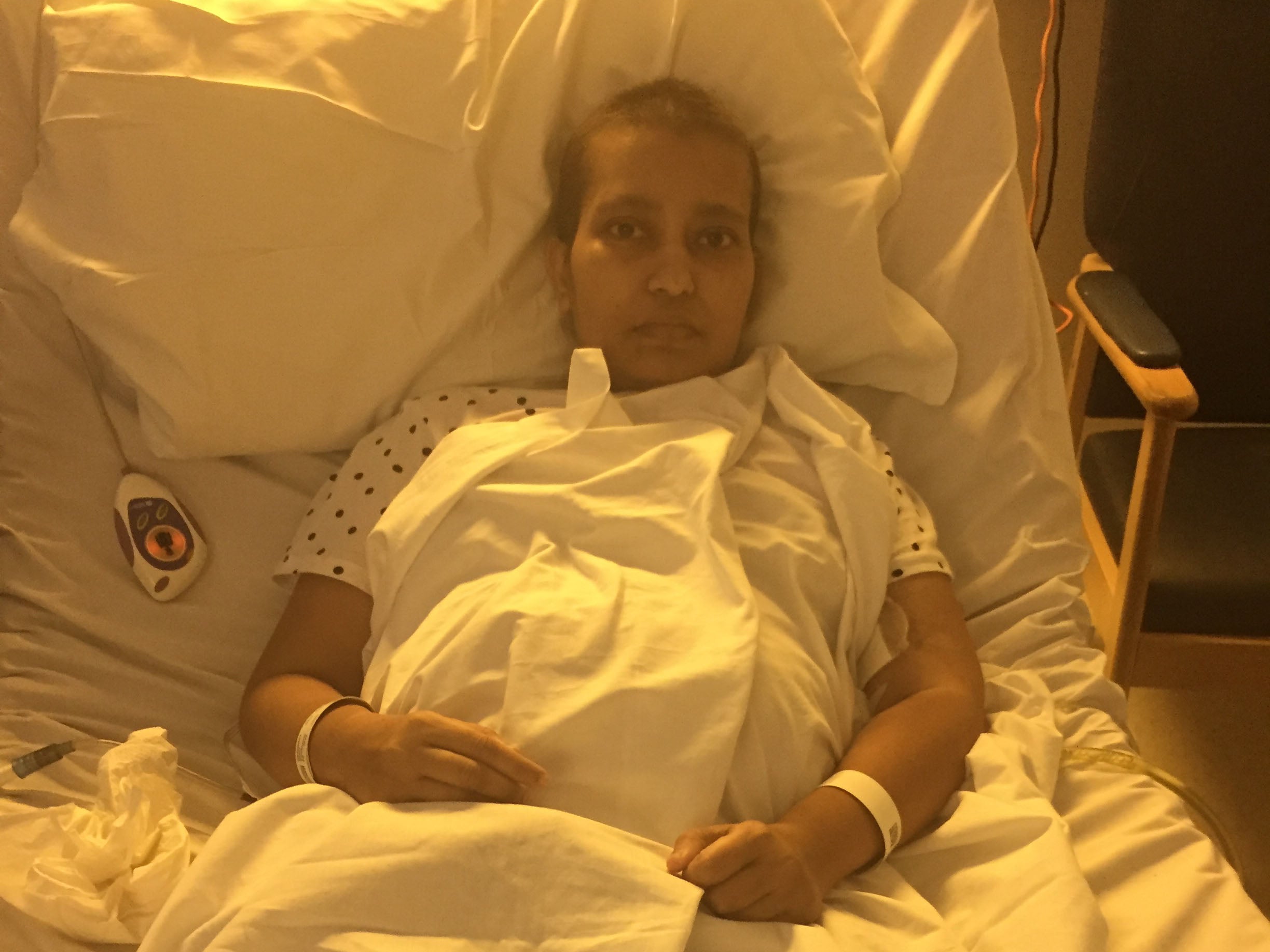US resident granted visa to see seriously ill daughter in hospital after Home Office U-turn
Officials overturn decision within hours of case being reported in the media claiming they received 'supplementary evidence' – yet no additional information was submitted

Your support helps us to tell the story
From reproductive rights to climate change to Big Tech, The Independent is on the ground when the story is developing. Whether it's investigating the financials of Elon Musk's pro-Trump PAC or producing our latest documentary, 'The A Word', which shines a light on the American women fighting for reproductive rights, we know how important it is to parse out the facts from the messaging.
At such a critical moment in US history, we need reporters on the ground. Your donation allows us to keep sending journalists to speak to both sides of the story.
The Independent is trusted by Americans across the entire political spectrum. And unlike many other quality news outlets, we choose not to lock Americans out of our reporting and analysis with paywalls. We believe quality journalism should be available to everyone, paid for by those who can afford it.
Your support makes all the difference.A Bangladeshi mother who was denied a UK visa by the Home Office to visit her seriously ill daughter has now been allowed into the country 12 hours after The Independent published a story about the case.
Fateha Begum, a 61-year-old who has residency in the US, was initially told she would not be granted a visa because immigration officials were “not satisfied” her intentions were genuine.
But she then received a letter from the Home Office stating they had “exceptionally overturned” the decision after “supplementary information and evidence” was made available to them.
Yet the family had provided no new evidence since the initial application.

The 61-year-old was initially told she could not come to Britain to see Tunazzina Nizu, who has recurrent ovarian cancer, despite providing financial evidence that she would be accommodated during her six-week visit and that her flight costs would be covered.
Ms Begum, who spends half her time in the US and half in Bangladesh, also included a letter from her daughter’s NHS oncologist who confirmed the cancer diagnosis, describing Ms Nizu’s condition as “very serious”.
But the decision from the Home Office, which provided no right to appeal, cast doubt over her reason for entering the UK. The government said it was not satisfied that she was a “genuine visitor”.
Within an hour of The Independent publishing the story, the Home Office called the family to tell them they were reviewing the case. Within 12 hours, they emailed Ms Begum to say they had “exceptionally overturned the original decision”.
The letter stated that the department was ”satisfied” the decision to refuse was correct at the time of consideration, but that the decision had been reversed based on the “compelling and compassionate aspects of [the] application, together with the supplementary information and evidence that has been made available to [the Home Office]”.
Jan Doerfel, Ms Begum’s lawyer, said he was “delighted” for his client and her family, but added it was a “scandal” that the Home Office defended the initial unlawful decision.
He said: “The fact is that my client had submitted all the evidence with her initial application on 10 September 2018, including all the financial information and her doctor’s letter which showed that she is a genuine visitor under the immigration rules. This evidence was ignored by the decision-maker, who was also fully aware of the compassionate circumstances in her case.
“It is a scandal that instead of apologising for the unlawful and devastating refusal in the first place – and vowing to review decision-making practices so this will never happen again – the entry clearance manager is defending the initial unlawful decision.”
He said they had tried to justify the reversal by citing supplementary information when there was none, adding: “What is needed is individual accountability for decisions that can ruin people’s lives and a clear commitment and consistent practice to take lawful decisions on all applications in the first place.”
Chai Patel, legal policy director for the Joint Council for the Welfare of Immigrants, said: “This case, like so many others, exposes a cavalcade of failings in the Home Office. This lady should never have been prevented from visiting her dying daughter. A decent country, which I hope we aspire to be, would do everything in its power to help such an application, not look for reasons to refuse.
“Caseworkers are far too reliant on the excuse that they suspect people who have compelling reasons to visit will want to stay on illegally, as way of helping Theresa May meet her net migration target.
“But worse it seems that yet again the Home Office has changed its mind just after a story broke in the press [...] They know these decisions are indefensible, but they also know that thousands of people don’t have the power to command media attention, and in those cases they continue to get away with it.”
Ms Nizu, who lives in Dagenham, East London, with her husband and two young children and is currently in Queen’s hospital, has had two unsuccessful rounds of chemotherapy. She is due to begin radiotherapy, but because of a failed kidney this has been delayed.
After hearing that the decision had been reversed, she said: “I’m so happy. My mum is going to come next week. I spoke to her this morning and she was very happy – crying with happiness. It was really hard when I thought I wouldn’t see her.”
Join our commenting forum
Join thought-provoking conversations, follow other Independent readers and see their replies
Comments